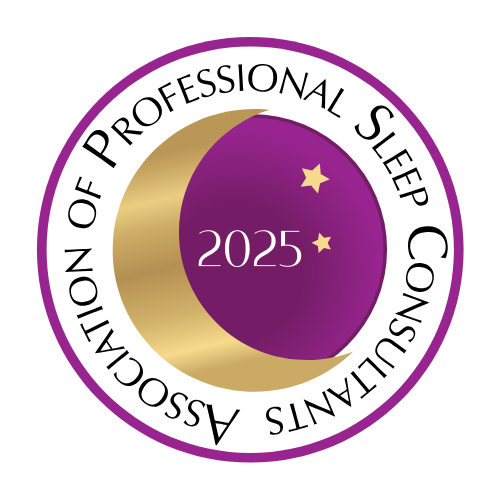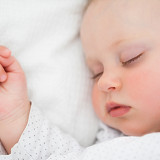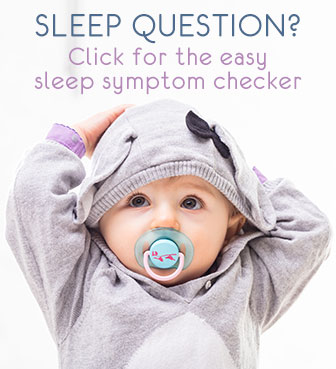Which Baby Sleep Method is Right for You?
Author Name: Heidi Holvoet, PhD
A sleep method gives you guidance to help your baby sleep. Some methods can be called baby sleep training (typically the harsher or more impatient methods).
I personally prefer terms like approach, techniques, support and guidance for the truly gentle, truly-no-tears method that I work with.
There are many programs on the market that promise you blissful nights and it can be tricky knwoing which one will truly help you and your baby sleep more and better.
Right here on Baby Sleep Advice we offer an approach that's unique and truly no-tears.
In general the methods out there - sadly even the ones marketed as 'gentle' - will involve some form of crying. These include the Ferber
method, Taking Cara Babies, Sleep Sense, Baby Whisperer, sometimes using terms like controlled crying or crying it out.

The single most important criteria will be how right an approach feels to you, how suited for your baby, and your family.
To be reliable and have a chance to be successful, any baby sleep (training) approach should be based on the same most valuable sleep parenting principles:
- be consistent and predictable
- use a well-adjusted and age-appropriate sleep schedule
- be in tune with a baby's individual needs
- promote age-appropriate self-soothing without forcing
- incorporate science-based healthy sleep foundations
Overwhelmed?
It's easy to feel overwhelmed and confused
by the many baby sleep
articles and books on the market. Unfortunately there are many,
sometimes conflicting and sometimes bluntly incorrect sources.
Do be careful with
paid
click-here-to-order
solutions that
guarantee
to
help your baby sleeping through the night
(yes even at an age where it is physically impossible or even
unhealthy ...).
Your best bet is to go with
your
instincts
, observe your baby/toddler well and do not let others
talk
you into something that does not feel right for you.
The different sleep methods
on the market
each take their
own
approach
to apply the basic principles and instruct parents how
to apply them.
Please (please!) be very careful if you come across a
quick-fix
magical solution that
promises a short-cut and omits any one of the above principles. They
will do more harm than good for your child's sleep, especially in the
long run.
Key differences
among the methods are in whether letting baby cry or not, help her with
settling or not,
co-sleeping or not, etc.
Since we're all different, no single method works for all babies or
toddlers and their families. What counts is to find out what works for
you.
Truly No Tears Baby Sleep Advice
Uniquely adapted to your baby's personal needs + truly without tears
Helping you find that unique best-fit way to help your baby or toddler
sleep is at the heart of this
website. It is my very personal mission and passion to guide you
through
best-practice basics and helping you
discover the specific techniques YOU and YOUR baby need, at a time you're both ready for them.
The many available modifications within the techniques, designed to ultimately suit your baby's needs are an essential and
much-loved part of the method, as well as its being
truly
without tears.
And we get results.
Start at these pages for general guidance with the basics e.g. help your baby sleep through the night, understand why your baby wakes at night, and avoid common infant sleep problems.
Finding a baby sleep method or sleep train method that really works for
your
baby or toddler may not be easy.
Of course you don't necessarily need a specific
market method
to guide you. The
main step in any case will be to trust your instincts. Approach sleep
parenting in YOUR way all while keeping supported by researched
information and proven tips and techniques.
I warmly invite you to read through the different topics on this site.
It will help build your understanding of the why and how of sleep, and
will help you discover what will work for you.
Never hesitate
to
Ask me A Question! any time.
Article Author: Heidi Holvoet, PhD - Founder, senior sleep consultant

Heidi Holvoet, PhD, is the founder of the Baby Sleep Advice website and movement, an award-winning author, baby & toddler sleep consultant with 17+ years experience as well as a certified lactation counselor.
Over the years, Heidi has received several awards inluding a Mom's Choice Award (MCA) and National Parenting Awards (NAPPA) for her Baby Sleep Advice website, programs and books. Also, Baby Sleep Advice was awarded "Most Trusted Infant's Sleep Solutions Company 2023" in the Benelux Enterprise Awards 2023.
Heidi continually conducts personal research and participates in continued education and in that way stays up to date with current scientific and pyschosocial infant care.

She is also a member of the Association of Professional Sleep Consultants of which she was one of the earliest contributors. She obtained her PhD degree in physics at the University of Ghent in Belgium.
Heidi is passionate about helping babies and their parents sleep more and better, with her trademark holistic and truly-no-tears approach that has been proven and praised time and again by parents worldwide to be effective and truly no-tears. Respect for you as a parent and your baby, is at the heart of Heidi's warm and kind support. Her approach always keeps in mind a baby's needs and abilities at any given age, is based on pediatric science and the most up to date knowledge in infant care and sleep science.
As well as the award-winning baby sleep programs, Heidi offers popular 1:1 consults and easy-access 30-minute SOS Sleep sessions.
Self
soothing
is the key to help
your baby sleep through the night

Self Soothing
by Heidi Holvoet, PhD

What to do when your baby wakes every hour
by Heidi Holvoet, PhD

Separation Anxiety
by Heidi Holvoet, PhD

Colic
by Heidi Holvoet, PhD

Why does my baby wake up every hour?
by Heidi Holvoet, PhD


